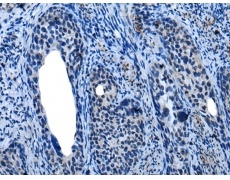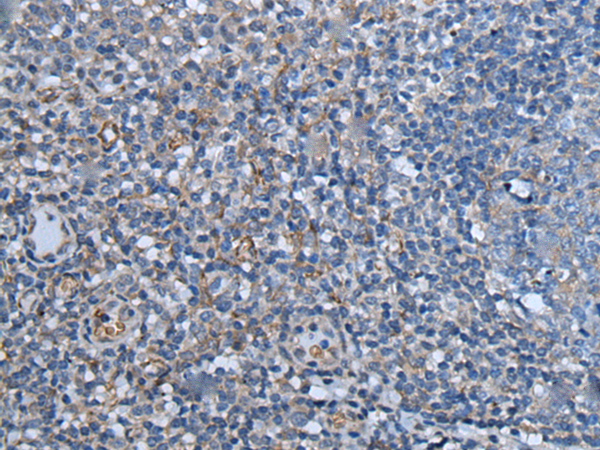儲 存: 冷凍(-20℃)
技術規格
Background:
Natural killer (NK) cells are lymphocytes that can mediate lysis of certain tumor cells and virus-infected cells without previous activation. They can also regulate specific humoral and cell-mediated immunity. NK cells preferentially express several calcium-dependent (C-type) lectins, which have been implicated in the regulation of NK cell function. The NKG2 gene family is located within the NK complex, a region that contains several C-type lectin genes preferentially expressed in NK cells. This gene encodes a member of the NKG2 family. The encoded transmembrane protein is characterized by a type II membrane orientation (has an extracellular C terminus) and the presence of a C-type lectin domain. It binds to a diverse family of ligands that include MHC class I chain-related A and B proteins and UL-16 binding proteins, where ligand-receptor interactions can result in the activation of NK and T cells. The surface expression of these ligands is important for the recognition of stressed cells by the immune system, and thus this protein and its ligands are therapeutic targets for the treatment of immune diseases and cancers. Read-through transcription exists between this gene and the upstream KLRC4 (killer cell lectin-like receptor subfamily C, member 4) family member in the same cluster.
Applications:
ELISA, IHC
Name of antibody:
KLRK1
Immunogen:
Synthetic peptide of human KLRK1
Full name:
killer cell lectin like receptor K1
Synonyms:
KLR; CD314; NKG2D; NKG2-D; D12S2489E
SwissProt:
P26718
ELISA Recommended dilution:
5000-10000
IHC positive control:
Human tonsil and human cervical cancer
IHC Recommend dilution:
10-50


 購物車
購物車 幫助
幫助
 021-54845833/15800441009
021-54845833/15800441009

